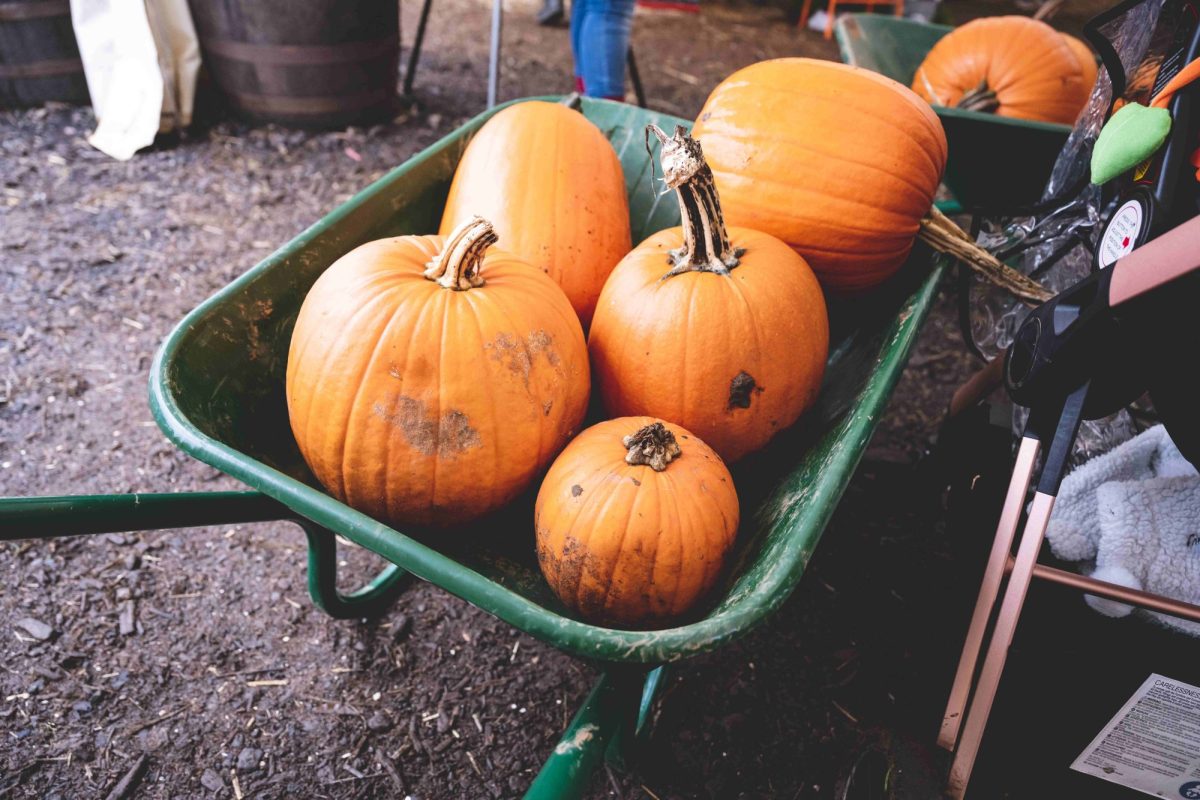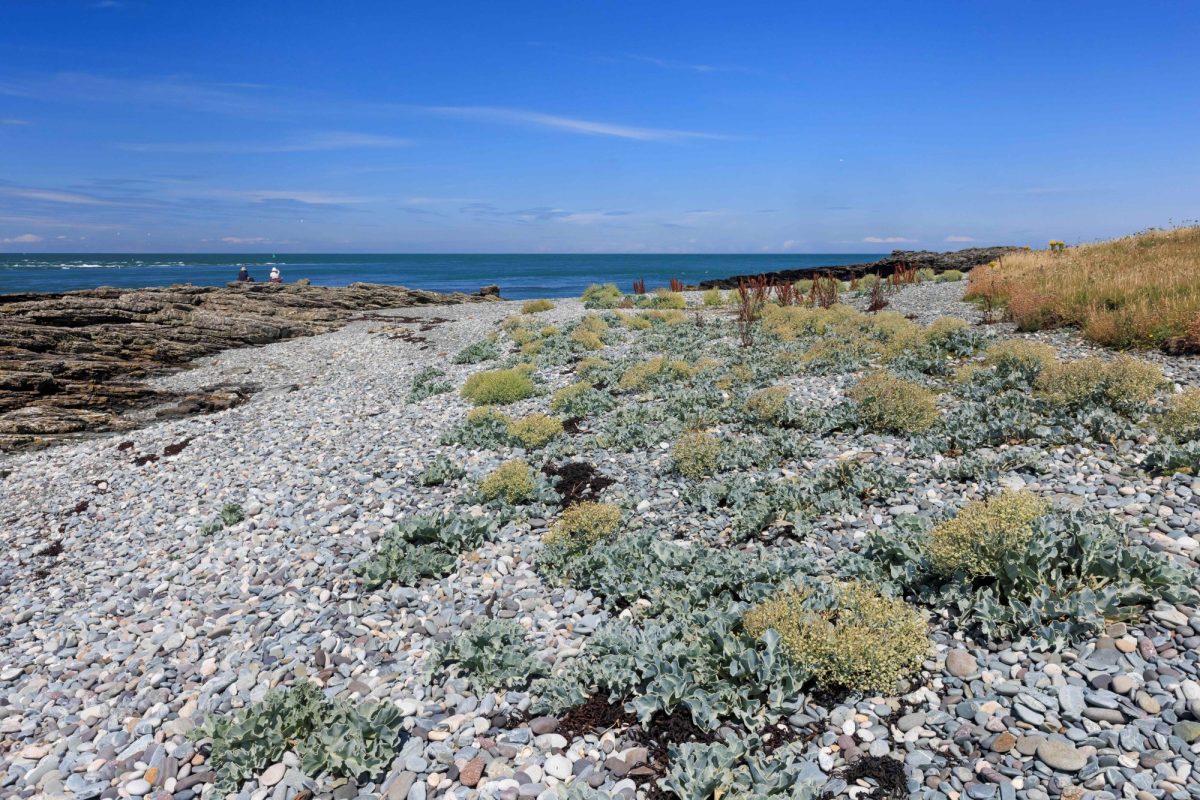In Interview with a Forager
Rooted in flavour and the wild beauty of North Wales, Earthly Feasts is a celebration of seasonal cooking, foraging, and connection to the land. We caught up with Bangor based Aimee Walker, the inspiring founder of Earthly Feasts, to explore how a love of food, nature, and heritage sparked a unique catering journey – one that blends wild ingredients with soulful storytelling. From blackberry brownies to coastal samphire, discover how Earthly Feasts brings the magic of the outdoors to the table, and why foraging is more than a trend – it’s a way of life. Here, Aimee shares her passion and gives her tips on getting started yourself.
It is so lovely to catch up with you Aimee, we have followed your journey for a while now and love the delights you create. Could you tell us about how Earthly Feasts started?
Earthly Feasts is two and a half years old now. I have worked in restaurants since I was about 17, and as much as I adored cooking and being part of a team, it dawned on me that I wasn’t cooking food that was local to my land. I wanted something that was more seasonal and to discover what it means to live here in North Wales. What does it mean to eat from my garden and the hedgerows? And what does it mean to have Welsh or Celtic food?
Around April of 2023, I had this idea pop into my head to check out retreat cheffing as a different type of catering. And I thought, I love the idea of this, I’ll give that a go. From there it happened fast. I called up a bunch of retreat venues, landed a gig, and then built it from there as the fastest way to test out new recipes that were celtic inspired. Since then, it’s grown to pop up events, retreats, private dinings and hampers.

Aimee Walker, Earthly Feasts
We love that, it really shows the passion you have for your work. Where did your affinity for food come from?
I often say that my passion for food came out of necessity. I’m a child of the 90s and my parents told me if I don’t want to eat this food, then I must go and make something myself. And so, I did. We had loads of cookbooks lying around, I would read the recipes and cook them to the ‘T’.
It was at a time where both of my parents worked a lot, but we would all sit together for dinner. That was special to me – food could be this glue and meals would become memories. You can always remember flavours from a holiday or that time your grandma cooked something, it’s there where my passion for food is rooted.
And where did the foraging side of things come into play?
From a foraging point of view, we lived abroad for a long time. I was in Thailand and could grow papaya and bananas easily because the land was so fertile, but I couldn’t grow my home herbs such as mints or rosemary. I started to think, what else is innate to my makeup? What does it mean to have Celtic or British flavours?
When we came back home, I set the intention to learn about the land. I feel our society needs to be a little more self-sufficient. This is what foraging is to me; it’s taking back agency of our own autonomy. We can walk down a hedgerow, or we can eat dandelions, we can put this nutrition back into our food and into our own hands.
Foraging in North Wales is special, because it’s so rich and diverse in its environments. There’s the sea, the woodlands and the mountains so close to us. It reminds you that seasonality is important, and that nothing lasts forever. We can’t have summers forever; we must go through a winter. It roots us in that moment. I really love that about North Wales and about foraging in general. For me the two go hand in hand.
Blackberries for example, everybody’s got a love of blackberries. We’ve all had purple fingertips from picking them on a walk with our parents or friends. That to me is part of who we are as people who live on this island (UK). Foraging is not something which is alternative or new, everybody’s picked a blackberry or been stung by a nettle, and I want to bring some of that remembering and honouring to the table.
You are so right, often we wouldn’t think that we are probably already foragers in some way. Do you have any simple ways to include your foraged finds in a recipe?
Something that can be made in season right now are my blackberry brownies. It’s a regular brownie recipe, but you put blackberries through it. It’s just a tasty way to incorporate foraged food into things that you already love – who doesn’t love a brownie, right!
Absolutely, those sound delicious! Do you have any tips for novice foragers?
My biggest tip when people ask how to start foraging is to go to your local library. Get a library card and pick up any book on foraging. My favourite one is the forager’s calendar – it works great for me because my brain works seasonally, rather than alphabetically.
I would start by researching the current month and choosing one thing to forage for. Sometimes we want to be an expert straight away, but honestly, it’s the best way to start. You may say, this month, I’m going to choose Alexanders. Find out what that is. Where is it? What environment does it like to live in? Sometimes you can start in your own garden. It could be that dandelions and sorrel are already growing in your garden, waiting to be eaten.
If you are keen, I would say go on a course. There are some great courses in North Wales. There’s one by a group called Wild People based in North Wales and there’s Leah from Living Wild UK, which does forage retreat days.
I would start following them, start filling your information hubs with people who do what you want to do, whether that’s Instagram or Facebook etc. You’ll quickly pick it up because we learn through imitating and visuals. It becomes easier when you absorb your world in it.
Speaking of starting seasonally, what’s in season for autumn?
Right now, winter squash is in season. There’s a range of squash that you can buy, I would recommend always trying to find the farm shops. The farm shop that I go to the most is Tyddyn Teg in Bethel, Pandy Farm. I also go to Hooton’s, which has some tasty jacket potatoes and crumbles outside.
Figs and apples are also in season right now. Rose hips are everywhere, which are the fruits that you see on roses. Elderberries are also out and both are packed with vitamin C. I see this as nature preparing us for winter, as they can be preserved and used to make syrups ready for the cold and flu season.

Where would you say are the best spots to forage in North Wales?
It’s a privilege to be here because we have so much to explore. There’s a ridiculous number of woodlands and ancient woodlands. If you wanted to start foraging, I would start at the coast.
Samphire grows naturally on the coastlines of North Wales. Also, trying a little bit of seaweed is great because there’s no poisonous seaweed on our coastlines – it’s quite far out at sea, so you’re safe with them. Contamination is what you have to look out for. The course I went on with Wild People was excellent at explaining what to watch for with this.
I remember gathering a lot of sea kale when I was working at a Boltholes in Aberffraw. You have to go and cast your eyes to what’s around. If you go on a coastal walk, that’s the time to start looking. It’s not a case of hunting for it but rather stumbling upon it. Rather than looking down at your phone, look out and discover the treasures around you.

Sea Kale on Cemlyn Bay, Anglesey
You can truly tell you have a passion for your land, what do you love most about North Wales?
I really value being in the Welshland. They’ve fought for their language, and the Celtic roots are still so strong here, something that has been eradicated through other parts of the UK.
It feels full of possibility and magic. I’m not fluent in Welsh – I’m forever a learner. My father-in-law is part of the Côr y Penrhyn choir and proudly shares the love of the Welsh language; just to hear Welsh songs being sung that you know have been sung for generations really gets to the soul. It creates a connection to one’s own heritage. It brings me hope to find the songs of my own lineage.
Aimee’s story with Earthly Feasts is a beautiful reminder that food is more than just sustenance – it’s a story, a connection to place, and a celebration of the seasons. Through her soulful approach to cooking and foraging, she invites us all to slow down, look around, and rediscover the magic growing right on our doorsteps. Whether it’s a handful of blackberries or a sprig of coastal samphire, Aimee shows us that the land has so much to offer – if only we take the time to listen.




